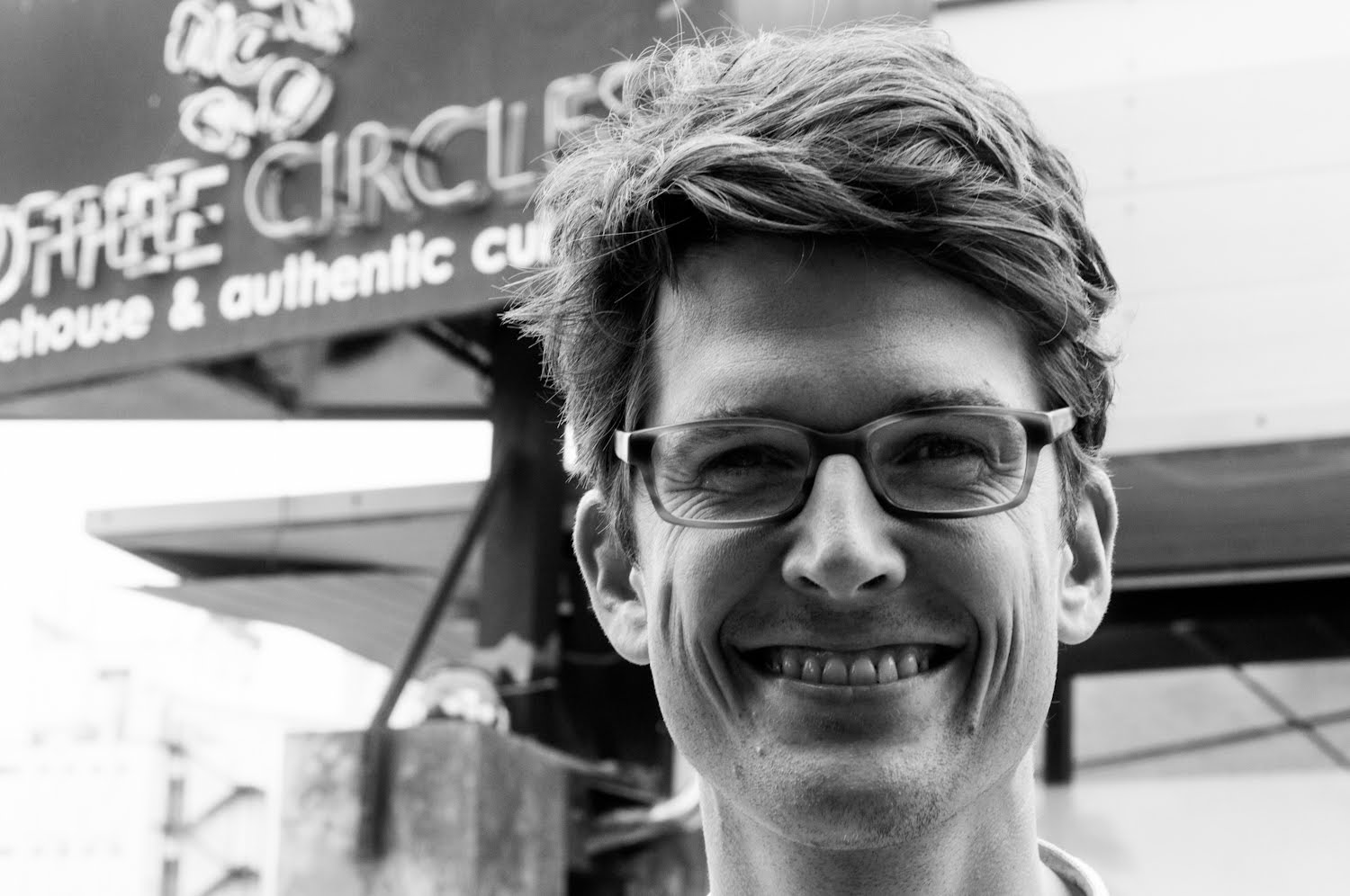Preparation in Anticipation for New Markets: Harald Friedl with Social Impact Myanmar (SIM)
Archive Date: January 10, 2018

Social Impact Mynamar and MVP development approaches to startup hubs, incubators, and ecosystem support in Yangon while waiting for market maturation.
It was an unassuming white block for a meeting. It was behind a wall, up a teeny slope, and had a restaurant with a patio beside. When Harald came in, still caught in a phone meeting. He grinned an apologetic greeting, gestured to the menu and nodded a hello at the waitress who came around to take our order. When he was finally let go, he let out an emphatic sigh and instantly switched gears to shake hands. We were meeting to discuss impact investing, startups, and social innovation.
From market surveys to MVP accelerator programs
Harald had written Starting Up in Myanmar: A First Guide in 2014, the first of its kind in a country that was just opening up to foreign investment and still cash-driven. That same year SIM cards sold in the black market for US$900 because the government had just started issuing them and was providing one to each family unit. When I visited in 2015, I could get a pay-as-you-go for US$5. In one year, people had gone from no cell phones to using two in order to maximize coverage using one of the three available networks.
Using his journalist and policy advising skills, Harald laid the groundwork for a new startup and innovation ecosystem: consolidating information. Right after giving me the report, which has lead to inquiries from overseas companies, he tells me it’s far from complete. But he had already started thinking about the next step: helping the entrepreneurs that he had interviewed address their struggles. He teamed up with Klaus Oberauer and other business partners to work on a possible product available in other markets: an accelerator or entrepreneurship hub. I had visited during this time to help the team consider their MVP social accelerator options.
Building MVP programs and ecosystems
In 2015, the Social Impact Mynmar (SIM) team was just forming. The founding members wanted to work with local entrepreneurs and startups on an endless list of potential opportunities the newly opened market could fill. Creating a startup hub could accelerate innovation, but being a first mover before the market had enough infrastructure or critical mass would be ineffective.
Harald and his co-founders quickly realized the fixed capital investment for a physical hub would provide too much pressure to simply fill seats in a culture where entrepreneurship was not the norm. Though there were bubbling organizations, some of which had been in operation for a few years, there was not enough to sustain a full accelerator program and the overhead costs. Funding from international organizations just beginning to scope out the market would require at least a year of negotiations. They needed a way to increase demand for entrepreneurship support before making a full investment.
Harald, Klaus, and their partners’ solution was to create Social Impact Myanmar (SIM) as a community of entrepreneurs. The MVP was programming run as workshops and training sessions to give entrepreneurs frameworks for business strategy and a support network. By running programs in venues sponsored by partners, they could offset their main overhead cost and focus on refining their product: workshops. They could also learn more about the needs of the entrepreneurs to inform how they created more cohesive programing in the future. Through these events, they were able to create an active community that supported itself and created buzz (facilitated through Facebook, which is an effective local marketing channel).
First Stake
The test for programs is not often how large they are, but how long they last until the market catches up. SIM consistently ran events, whether as workshops or entrepreneurship circles. By 2016, the SIM team had created enough demand for spaces and knowledge resources. In addition, other market infrastructure had emerged to create a critical mass. WiFi and data was readily available, providing opportunities for developers and tech companies to emerge and create viable products for a large enough market of consumers with mobile phones. Foreign companies were entering and international organizations such as development banks and social innovation hubs were actively seeking out local partners.
Harald and his partners leveraged their international resources and contacts to launch the community space they had envisioned previously. They joined the Impact Hub network and leveraged the international brand to give Impact Hub Yangon a launchpad. Now in 2018, Impact Hub Yangon already has a second location in the central district.
Now, Harald has moved back to Europe to start The Circle Economy, a social enterprise that aims to accelerate the transition to circularity through solutions that are on the ground, action-focused and scalable.
Despite his accolades, Harald often biked around Yangon, braving drivers and potholes with equal grace. Three years is light speed for economies, but an eternity for startups. Impact Hub Yangon remains startup that is still consolidating its various income streams. It is reaching out to international partners who want to learn more about the local Myanmar startup and social innovation scenes.